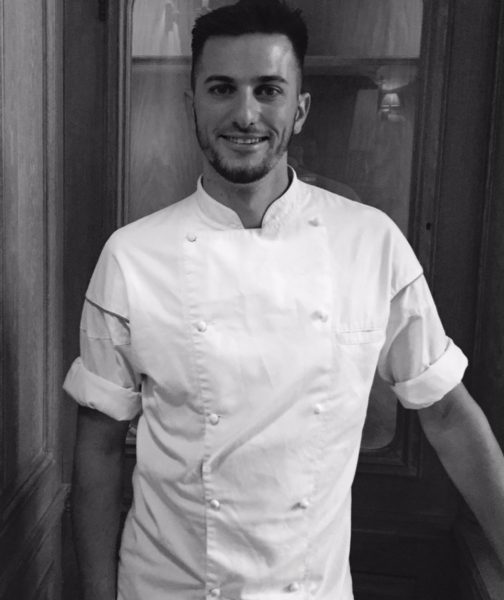Belgium’s battered horeca sector has been devastated by the health pandemic, with dire warnings of possible fresh bankruptcies in the industry.
The country’s coronavirus consultative committee, which met on Friday, offered a ray of hope for bars, cafes and restaurants, both in Brussels and the rest of the country. Federal minister for small businesses, David Clarinval said “If we reopen contact professions such as hairdressers, beauty salons we will have to wait at least three weeks to see how it goes. If all is going OK, we could hope for the reopening of other sectors in March.”
A reopening for restaurants cannot come soon enough for many in the hospitality trade in Belgium, including Alex Joseph, co owner of the popular Rouge Tomate on Avenue Louise in Brussels.
Alex and his business partner, Thierry Naoum, have just launched a crowdfunding effort to try and raise enough financial support to stay afloat.
Alex, who hails from the U.S, told this website of their plight, “We have been under extreme pressure to keep our business afloat. Belfius bank has also added to this pressure. The situation is critical. They’ve given myself and Thierry until February 15th to come up with €20,000 or they press the detonate button.”
The restaurateur added, “We’ve paid our debts for over 7 years in total over €400,000. We’ve launched a Gofundme and we are off to a great start but we need more visibility.”
GoFundMe is an American for-profit crowdfunding platform that allows people to raise money for events ranging from life events such as celebrations and graduations to challenging circumstances like accidents and illnesses.
Alex said, “I think one of the worst things is that it’s a situation that’s not our fault. Nor the fault of our landlords or suppliers. It’s true that difficult times are ahead and we are not out of the clear just yet but I’m optimistic and positive about the future.”
The Belgian government gave its approval for the reopening of holiday villages and campsites from 8 February and animal parks from 13 February – when estate agents will again be allowed to show potential buyers and tenants around properties.
One restaurant in Rixensart, Walloon Brabant, reopened on 1 February – but with mannequins taking the place of regular customers, as reported by The Bulletin.
It quoted the owner of Chez Thérèse, Thérèse, saying, “We’ve given names to each mannequin, in memory of our great customers. We miss them a lot. Between the two waves, business was good – up 60% on the previous year. But afterwards, we’re fallen back to zero. We can’t take it any longer. We want to work again – this is our livelihood, our daily lives.”
The Bulletin also states that the Brussels Hotels Association has also launched a promotional campaign to encourage residents to spend a night away from home with their partner, a close contact or best friend. High-end hotel rooms are on offer for a fraction of their normal price, from 12-21 February.
There are some small signs, then, that the horeca trade might still be rescued by, as Alex, says, “time is of the essence.”
“Things are desperate and we urgently need help now,” he said.
He and Thierry built up the business into what is now one of the most popular restos in Brussels, serving top quality cuisine to an international audience.
To soften the financial blow to the catering sector, the Belgian government offered an exemption from VAT for the financial quarter but Alex says the crisis is the most serious threat to the viability of the Brussels horeca trade since the 2016 terrorist lockdown.
Alex insists that as health has to be of paramount importance he cannot dispute the Government’s right to take such drastic action, such as shutting restos but he adds “The restrictions are severe and will have an impact. For instance, we have had to put some staff on short term hours.
“Restos always seem to be the first to shut and then the last to reopen.”
He adds, “I am sure we can make this work and get through this massively difficult period,” added Alex, whose typical positive American “can do” attitude is sure to help his business cope with the current situation.
Alex has been at Rouge Tomate since 2009 when he joined as executive chef having come to the attention of Thierry at the New York version of Rouge Tomate. Thierry, a fourth generation Belgian/Moroccan – his grandfather first arrived in Belgium back in 1934 – started work at Rouge Tomate as a relatively humble head waiter.
He was trained at a business school in Brussels and helped to open the New York version in 2008 which is when he first encountered Alex, who is from California.
Alex was one of an astonishing 80 chefs who were working at what, at the time, was the biggest resto in Manhattan.
Impressed by Alex’s record there, Thierry gave him the chance to come to Brussels, an invite he readily accepted.
When Rouge Tomate because available, the pair purchased it and have been business partners ever since.
The intervening years have not been without their difficulties, including the terrible 2016 terrorist attacks that paralysed the horeca trade here. Other challenges have included the tunnel closures on Avenue Louise that hit trade in the area generally.
But, as Alex says, none of this remotely compares to what the horeca trade is suffering right now.
He adds, “I just hope and pray we can come out the other side of this nightmare.”
Meanwhile, Belgian consumer group Test Achats has publishing the results of its 9th “Covid” survey, the objective of which this time was to find out the opinions and perceptions of Belgians about vaccination.
The survey was conducted from January 15 to 20, 2021 on a representative sample of more than 1,000 Belgians.
The results show that the population is still too distrustful of vaccination, in particular among people who do not consider themselves sufficiently informed: in fact, only 4 out of 10 Belgians say they are ready to be vaccinated immediately.
The need for information and transparency about possible side effects and negotiations for the purchase of vaccines appear to be key elements in increasing the confidence of Belgians in vaccination. Test Achats therefore calls on the authorities to be transparent and to go even further in their efforts to better inform the public.
The main reservations expressed for all those not wishing to be vaccinated as soon as possible are fear of side effects (61%), not belonging to a risk group (28%) and lack of confidence in the process of development and approval ofe vaccines (31%). More than 4 out of 10 respondents believe, for example, that the process was too fast to guarantee the safety of citizens. The lack of transparency about negotiations for the purchase of vaccines (price, liability, etc.) is also pinpointed – less than 1 in 4 Belgians believe that the government has been transparent in this matter.
“The results of our survey only confirm what we have said for months: transparency in discussions and agreements with the pharmaceutical industry are essential elements to win public confidence in vaccination. We hope that our authorities will hear the message,” said Julie Frère, spokesperson for Test Achats.
One year after the start of the pandemic, Test Achats also reports the “immense” impact it has had on the population.
Some 84% of Belgians have been affected in one way or another. More than one in 3 Belgians has a loved one who has been infected with the virus, and nearly one in 10 Belgians has a loved one who has died. In addition, almost one in 3 Belgians say that the pandemic has had a significant impact on their mental health, and 14% have seen their economic situation deteriorate due to the crisis.




